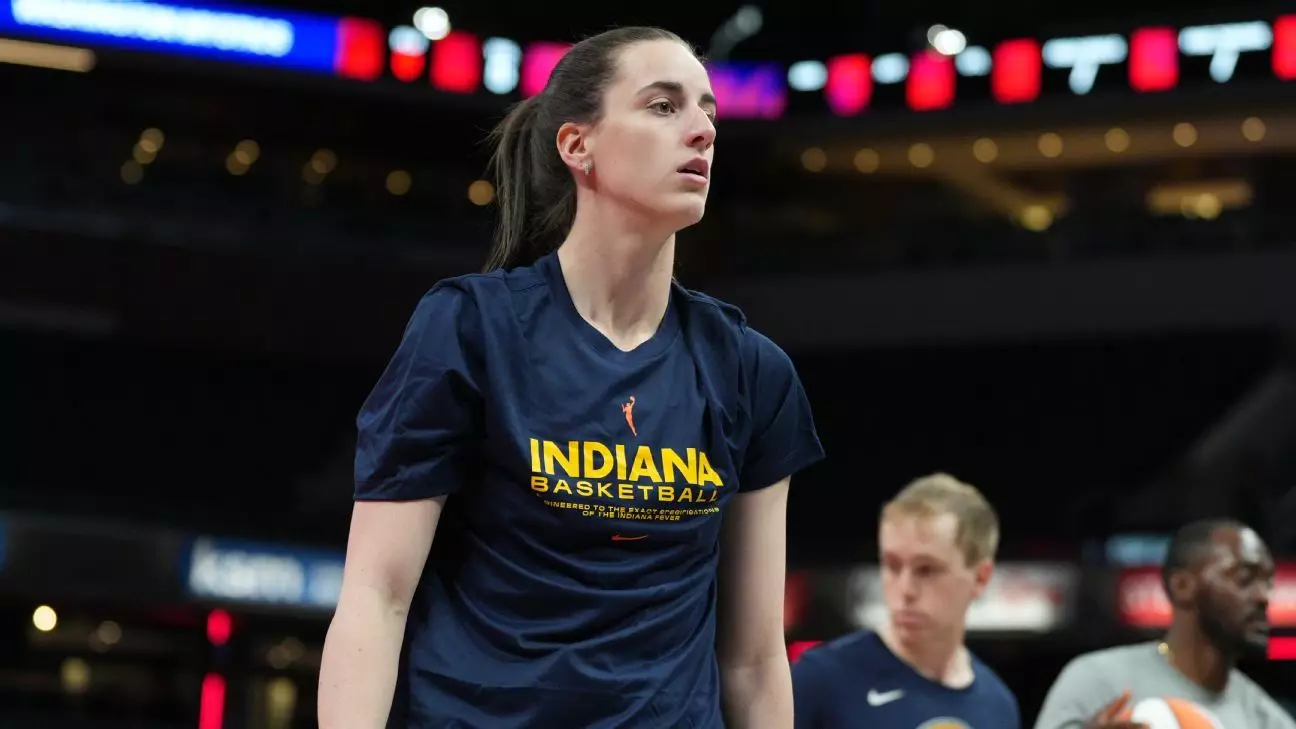Caitlin Clark, the dazzling star of the Indiana Fever, finds herself navigating uncharted waters after a left quad strain sidelined her for three crucial games. This injury marks a poignant moment in her burgeoning career, one characterized by unmatched athleticism and a fierce competitive spirit. The implications of her absence extend beyond personal frustration; they echo through the fabric of her team. While Clark remains optimistic about her gradual return, the truth is that for players like her, becoming a spectator is a difficult transition, challenging their identity and purpose on the court.
Completing the transition into professional sports often involves overcoming a series of hurdles, but missing games due to injury takes it to an entirely new level. Clark’s immediate concern is not just when she can lace up her sneakers again, but also how this time off impacts her mental game. The patience she acknowledges having to develop is a crucial skill that many athletes overlook. She states, “I’ve never been a patient person my entire life, so this is definitely testing me a little bit.” It is a candid admission that highlights the often-invisible but significant psychological toll of sports injuries.
From Player to Patient Advocate
Interestingly, Clark’s time spent on the sidelines has afforded her unique learning opportunities. She has positioned herself not merely as an astute observer but as a vocal teammate and informal coach. By sitting close to staff members and absorbing their strategic conversations, she’s learning to merge her competitive spirit with a new understanding of the game from a broader perspective. This shift transforms her from being just a player to becoming a critical connector between the coaching staff and her teammates. Her approach embodies the essence of team dynamics: supporting each other, even in moments of absence.
In her own words, Clark affirms, “It’s taught me a lot. I’ve never been in that position before of actually getting to watch from the bench for an extended period of time.” Watching from the sidelines can often impart wisdom unmatched by direct experience in games. Observing gameplay choices, positioning, and communication from an outsider’s perspective affords a renewed appreciation for the intricacies of the sport. It’s a lesson in humility that many elite athletes rarely get to experience, but Clark embraces this challenge as an opportunity for growth.
Team Evolution Amidst Adversity
The Fever’s performance during Clark’s absence paints a portrait of resilience. Since her injury, the team has faced not only the loss of their star point guard but also additional challenges. With the team struggling with other injuries and limited player availability, they have had to dig deep into their reserves of adaptability. As Clark eloquently states, “Things aren’t going to be perfect.” Her words resonate in a world where athletes are often held to impossibly high standards of performance.
Yet, it is during moments like these that true character is revealed. The Fever managed to secure a hard-fought win against the Washington Mystics, thus breaking a three-game losing streak. This victory speaks not just to individual talent but to collective effort, the very essence of team sports. Different players must step up to fill the roles left by absent stars, and this necessity can catalyze growth and uncover latent potential.
Clark acknowledges the potential for a different style of play in her absence, noting that the improvisational nature of the game can yield both challenges and benefits. “We’re kind of playing a little bit different than we’d probably play if I had the ball in my hands,” she elaborates. This adaptability is not just about strategy; it’s about encouraging teammates to find creative solutions, fostering an environment that values collaboration and trust over individualism.
Learning the Unseen Lessons
One of the most poignant aspects of Clark’s injury lies in her acknowledgment of what it means to be a good teammate, even from the sidelines. The lessons learned from her time off extend beyond mere basketball skills; they touch on the emotional resilience required to thrive in a highly competitive environment. She emphasizes an attitude of grace and understanding, seeing the need for her teammates to adapt and change without harsh self-judgment.
This philosophical approach, framed through the lens of liberalism, suggests that professional sports can evolve into a platform for personal growth, where athletes embrace the highs and lows—reinforcing the value of community and support. Clark exudes a maturity that encapsulates the idea that even at the highest levels of competition, the human aspects of empathy, patience, and teamwork are paramount.
In this unexpected journey, Caitlin Clark not only redefines her role within the Fever but also exemplifies the ethos of perseverance, connection, and shared success. Each injury lays bare the intricate balance between individual talent and collective capability, crafting a narrative that extends far beyond the game itself.



Leave a Reply